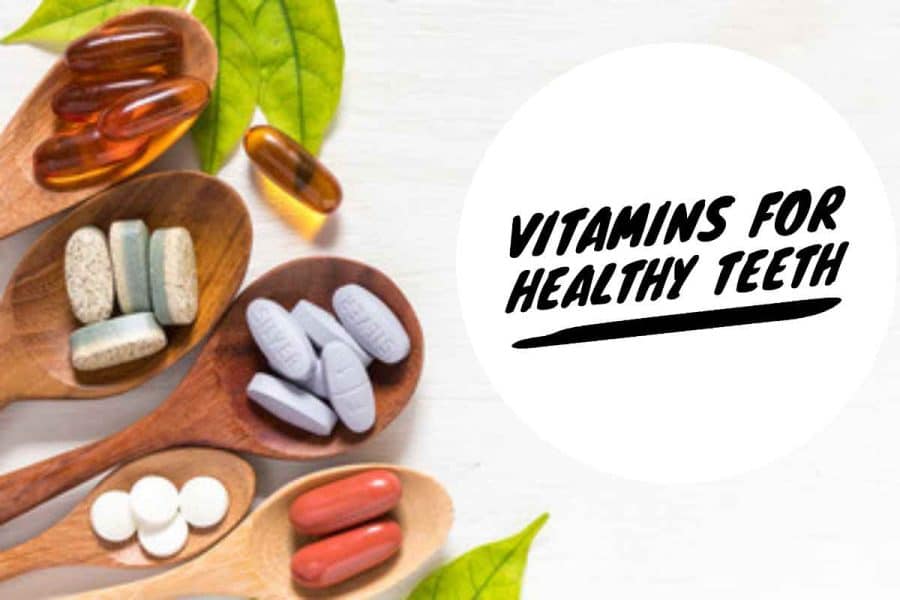Has we all know that a well-balanced diet provides the required minerals, vitamins, and other nutrients that our bodies needs and also essential for healthy teeth and gums.
Fluoride in the other hand is another option to keep our teeth healthy which can be found in natural foods and fluoridated water supply, and help us to reduce decay and fight harmful bacteria. This process has helped every individual reduce tooth decay and cavities by 60 percent.
Dental Health Guidelines for Healthy Teeth
According to the Mayo Clinic, I have learned that the best way to start the whole process is by eating good food at the right time. In addition, a woman that is pregnant or that have delivered a baby should make sure that your children’s teeth get the best diet and nutrient dey deserves right from their childhood age.
And during pregnancy. Most importantly we all need calcium, which helps us to form our strong teeth and make the bones healthy, and vitamin D also, which helps our body to absorb the required calcium according to our needs.
8 Major Vitamins and Minerals for Your Healthy Teeth and Gum

Did you want healthy teeth and gums? Make sure your diet has these major key ingredients. These nutritional building blocks are essential for your oral health.
1. Calcium
Calcium is one of the most essential vitamins and minerals for stronger teeth and healthy body, this mineral helps us to build good bones and develops it while providing well structural support. In your mouth, calcium helps harden your enamel and strengthen your jawbone. You need lots of calcium for healthy teeth and gums.
What to eat: Low-fat dairy products, fortified soy, and rice beverages, canned salmon or sardines (with bones), almonds, and dark green leafy vegetables are excellent sources of calcium. In addition to milk, good sources of calcium include cheese, yogurt, broccoli, and salmon.
2. Vitamin D
Vitamin D helps our body to absorb better calcium while boosting healthy bone mineral density, so it’s essential for you and your body to get an adequate amount of vitamin D too, to get the most out of your calcium intake. You need vitamin D to help absorb the calcium very well to maintain healthy teeth.
What to eat: Vitamin D is obtained from fluid milk, fortified soy and rice beverages, margarine, fatty fish such as salmon, and moderate exposure to the sun. Your body naturally makes vitamin D when it’s exposed to sunlight, but the vitamin can also be found in canned tuna and portobello mushrooms. You can also get foods and drinks that have been fortified with vitamin D, such as milk, orange juice, and cereal or get yourself a multivitamin supplement.
How to get Vitamin D into my Body
The recommended value of Vitamin D required for optimal maintenance of healthy teeth and gum is between 5000 - 6000 IU. If you live in a colder area you will need more vitamin D daily than someone living in a sunny climate.
3. Potassium
Likely similar to vitamin D, potassium improves bone mineral density too. It also works with magnesium to prevent blood from becoming too acidic, which can reduce calcium and other essential vitamins from your bones and teeth.
What to eat: Bananas are well-known sources of potassium, but they’re not alone. Other fruits and vegetables with high levels of the mineral include lima beans, tomatoes, Swiss chard, potatoes, sweet potatoes, avocados, and prunes are a good source of potassium.
4. Phosphorus
Phosphorus supports calcium in building strong bones and teeth.
What to eat: Phosphorus is found in a wide range of varieties of foods. Rich sources of the mineral include seafood, such as scallops, sardines, cod, shrimp, tuna, and salmon. If you’re looking to get your phosphorus from plant-based foods, consider soybeans, lentils and pumpkin seeds. You can also find phosphorus in beef, pork, and cheese too.
5. Vitamin K2
This vitamin represents a shield in the body – it helps block substances that break down bone. It also helps your body produce osteocalcin, a protein that supports bone strength. A vitamin K deficiency can slow down your body’s healing process and make you more likely to bleed.
What to eat: Chowing down on leafy greens, such as kale, collards, cheese, and spinach, can help you increase your vitamin K quota. Other great sources include parsley, broccoli, and Brussel sprouts.
Which Supplement is best for Vitamins K2
To get the optimum level of vitamin k2 per day you need a supplement. You can get 180 mcg per day of k2 without adding a supplement, we have searched the whole market for the best vitamin and we found that Evolved Organics formulation contains exactly the 180 mcg concentration that you need for healthy teeth. This is great because you will get your RDA in 1 sitting. The Evolved Organics Formulation is Available to purchase from Amazon.
6. Vitamin C
Vitamin C is an antioxidant and also help strengthen our gums and the soft tissue in our mouth. It protects us against gingivitis, the early stage of gum disease, and prevent us from loosening our teeth.
What to eat: You probably already know that citrus fruits are rich in vitamin C, but you can also find it in potatoes and leafy greens.
7. Magnesium Vitamins
Magnesium has a balancing effect on calcium metabolism and also prevents calcium plaque in the arteries. Studies have established that it is magnesium and not calcium that forms the hard enamel that resists tooth decay. It is essential for the proper development of the tooth structure.
The more calcium you get the higher your Magnesium requirement will be. They both depend on each other. Another key feature of Magnesium is that its activities in cellular metabolism and is necessary for the energy production that allows cleansing fluids to pass through the dentin of teeth.
More recent studies have suggested that there is a link between magnesium deficiency and increased risk of periodontitis so it's crucial to get the right levels in your body each day.
What to eat: Fish - Salmon and tuna are filled with magnesium and omega 3 fatty acids. Try consuming 3-4 times per week.
Nuts & seeds - 2 tablespoons of Pumpkin seeds contain 96 grams of magnesium. Bananas - A medium-sized banana contains around 32g grams of magnesium making it a powerful snack to have.
Dark Leafy vegetables - Choose raw or cooked greens such as baby spinach, collard greens or Kale.
Which Magnesium Vitamins Supplement Is the Best
Oral magnesium glycinate is the most popular supplements.
Those such as vegetable or magnesium stearate or stearic acid can inhibit absorption. The brand we recommend is Pure Encapsulations (sold by Amazon) simply because it's the most biologically active and does not contain any fillers or binders.

8. Vitamin A
This vitamin helps keep mucous membranes healthy. It prevents dry mouth and helps mouth heal quickly.
What to eat: For strong gums and teeth, eat plenty of fish, egg yolks and liver and magnesium (found in whole grains, and bananas). You can also find it in leafy green vegetables like spinach, kale and collard greens, or in orange-colored fruits and oranges: think apricots, cantaloupe, pumpkin, carrots, and sweet potatoes. These fruits and veggies contain high levels of beta-carotene, which your body converts into vitamin A.
Fluoride is the best option for healthy teeth!.
Like I said earlier run, and to some level of extent, cavities can be prevented by applying fluoride at a youthful age (in the first few years of life). We have a various method of applying Fluoride in different countries, some are supplied through fluoridated water (not all countries fluoridate their water supply), however, some countries use others means such as beverages made with fluoridated water, tea, and some fish, as well as many brands of toothpaste and some mouthwash.
In addition, Fluoride supplements are also available for some children in some particular countries who don’t have access to fluoridated drinking water. You can check to see if the water supply in your local area is fluoridated. So that, you won't get Excess consumption of fluoride that can cause mottling of the teeth.
Children are particularly vulnerable to tooth decay; parents should:
- Provide a good diet throughout childhood
- Brush your children’s teeth until they’re older to brush mature enough to brush effectively by themselves (usually by 6 or 7 years old)
- Encourage your children to brush twice-daily and monitor then. Encourage them on flossing thereafter
- Never put babies or toddlers to bed by giving them a bottle of milk (which contains the natural sugar lactose), juice, or other sweet drink
- Never dip pacifiers in honey or syrup
Be careful when eating dried fruits. Dried fruits can have a negative effect on teeth because they are high in sugar and stick to your teeth. Even unsweetened fruit juices can also be a factor that leads to tooth decay because they are very acidic and contain very high levels of simple sugars.
Fresh fruits, especially apples, are better choices. Fresh fruit, although both sweet and acidic, is much less likely to cause a problem, because chewing stimulates the saliva flow.
Saliva decreases mouth acidity and washes away food particles. Apples, for example, stimulate the gums, increase saliva flow and reduce the build-up of cavity-causing bacteria. A dry mouth (xerostomia) also contributes to decay. Saliva flow slows during sleep; going to bed without brushing the teeth is not advisable. Certain drugs can trigger these actions, including those used for high blood pressure, also cut down saliva flow.
Gum disease. A lot of individual loss More teeth because of gum disease than tooth decay. Gum disease is likely to strike anyone who neglects oral hygiene or lack daily vitamins and minerals.
Particularly this categories of people are at high risks, such as:
- Alcoholism,
- Malnutrition,
- AIDS/HIV infection.
And those that have been treated with steroid drugs in the past or certain cancer chemotherapies.
In addition, I have been able to point out the basic vitamins and food you needed so far for healthy teeth. I know you share the same ideas and tips with me. Also, don't neglect your part on your oral hygiene by brushing regularly and flossing help to prevent anything, sore, and inflamed gums.
Related
The content is intended to augment, not replace, information provided by your clinician. It is not intended nor implied to be a substitute for professional medical advice. Reading this information does not create or replace a doctor-patient relationship or consultation. If required, please contact your doctor or other health care provider to assist you to interpret any of this information, or in applying the information to your individual needs.

